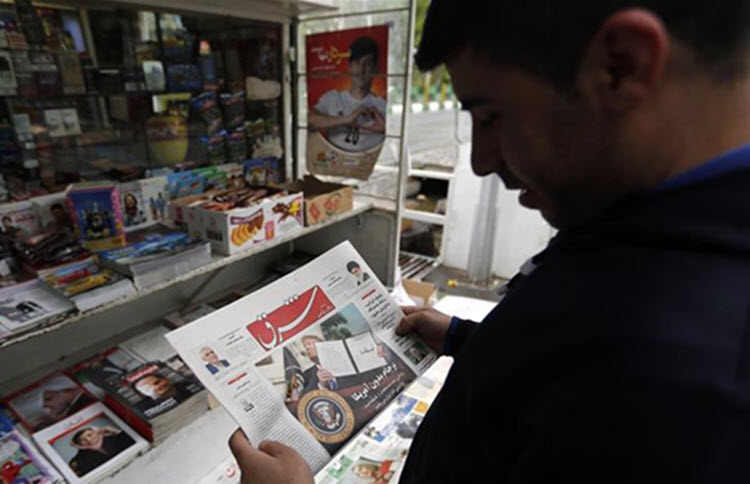Australia/Israel Review
Under Pressure
Jun 26, 2018 | Amos Harel

The decision by US President Donald Trump to pull his country out of the Iran nuclear deal in early May has already wreaked widespread economic damage on Iranians. According to intelligence assessments presented to Israeli leaders, the chain reaction to the American decision on May 8 has been more severe than originally forecast.
When Trump announced his decision last month, he threatened at the same time to reinstate harsh sanctions against the Iranian oil industry and foreign firms that trade with it. These steps are supposed to go into full effect at the beginning of November. Some American companies, among them aeroplane manufacturer Boeing and General Electric, which signed contracts to supply equipment to Iran’s outdated oil industry, are already preparing to halt their investments in the country.
According to reports, at the last minute, sports equipment maker Nike cancelled a delivery of soccer cleats to the Iranian national squad which is participating in the World Cup in Russia. In Europe, British Petroleum announced that it would end its investment partnership with an Iranian oil company in deep-sea drilling off the Scottish coast.
Ministers from Great Britain, France, Germany and the European Union sent a letter at the beginning of June to Trump Administration cabinet members, in which they asked the United States to exempt energy, aviation and health companies from the secondary American sanctions – which target European companies trading with Iran. European giant Airbus signed contracts worth US$1 billion with Iran after the nuclear deal was signed in 2015. Another large European company liable to be hurt by the sanctions is French energy company Total.
According to Israeli intelligence, Iran had hoped to reap sizeable profits from deals with European and American companies during the coming period. However, now the Teheran regime faces abandonment by companies that had already signed contracts, in addition to stalled negotiations with other companies, because of the American move. Thus, internal pressure on the regime, in the form of frequent demonstrations by the opposition in cities across the country, is also coming into play. Most of the demonstrations focus on the cost of living.
Israeli intelligence officials have the impression that the double economic pressure – domestically and from abroad – is accelerating the division at the top of the regime between the conservative camp and the more moderate one. Part of the dispute involves the question of Iranian foreign aid to terrorist and guerrilla organisations across the Middle East. According to various assessments, Teheran disburses nearly US$1 billion annually to these clients, including Hezbollah, Shi’ite militias fighting on its behalf for the Assad regime in Syria, Houthi rebels in Yemen and two Palestinian organisations in the Gaza Strip, Hamas and Islamic Jihad. The moderate camp supports cutting this expenditure. Some protesters in Iran have made vocal calls or waved signs condemning the use of government funds for these purposes at the expense of the Iranian people.
Still, despite the combination of developments worrying the Iranian regime, Israeli intelligence officials do not rush to conclude that the regme’s stability is under threat. Iran’s leadership has already coped well with previous waves of protest, including early this year.
In the wake of the US departure from the nuclear agreement, Iran announced last week that it would renew the process of increasing its uranium enrichment capability. However, these moves are still being taken within the limits set in the Vienna nuclear agreement and do not constitute a violation of it. It looks mainly like a declarative action aimed at the European nations signed onto the agreement, and not as a prelude to an Iranian withdrawal from it.
Amos Harel is the military and defence analyst for the Israeli newspaper Haaretz. © Haaretz, reprinted by permission, all rights reserved.
Tags: Europe, Iran, Middle East, United States






